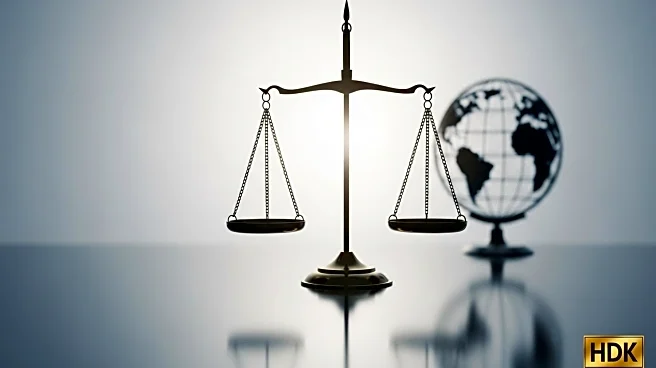What is the story about?
What's Happening?
Filippo Grandi, the U.N. high commissioner for refugees, has suggested that the deportation practices of President Trump's administration may violate international law. In a speech, Grandi expressed concern over a global backlash against migrants and refugees, highlighting the U.S.'s aggressive deportation tactics. He noted that the Trump administration has advocated for a revamp of the global asylum system, arguing that it has been abused. Grandi also pointed out that funding cuts have forced the UNHCR to reduce its workforce significantly, impacting its ability to address the growing number of displaced individuals worldwide.
Why It's Important?
The criticism from the UN refugee chief underscores the international scrutiny of U.S. immigration policies under President Trump. The potential violation of international law by a major global power like the U.S. could have significant diplomatic repercussions and affect the country's standing in international human rights discussions. The reduction in UNHCR's capacity due to funding cuts further complicates the global refugee crisis, as the agency struggles to meet the needs of millions of displaced people. This situation highlights the tension between national sovereignty and international humanitarian obligations, with potential implications for global migration policies.
Beyond the Headlines
The broader implications of the U.S.'s deportation practices and the UNHCR's funding challenges include potential shifts in international relations and humanitarian aid strategies. The erosion of respect for international law in developed countries, as noted by Grandi, could lead to a reevaluation of global refugee conventions and asylum policies. Additionally, the focus on national sovereignty over international cooperation may influence other countries to adopt similar stances, potentially exacerbating the global refugee crisis.


















